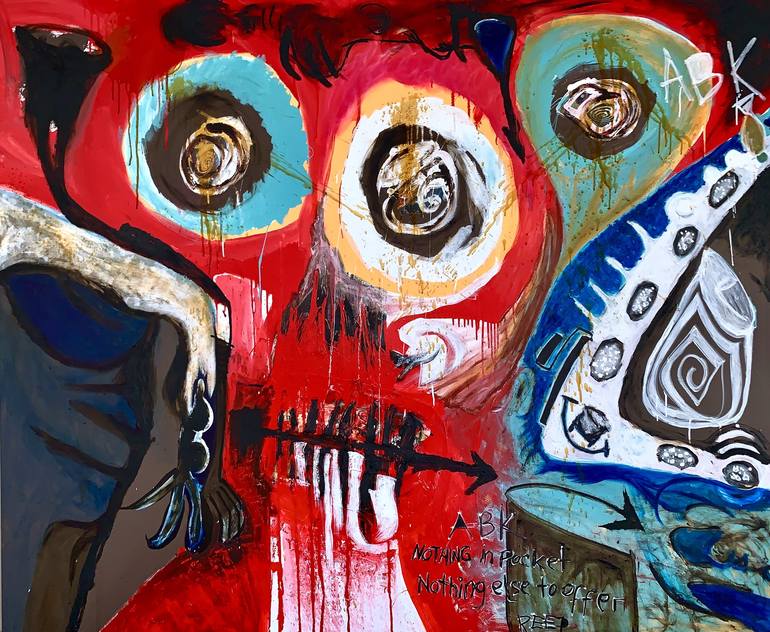





129 Views
6
View In My Room
Painting, Acrylic on Canvas
Size: 72 W x 60 H x 2 D in
Ships in a Crate
$2,377
Shipping included
14-day satisfaction guarantee
Trustpilot Score
129 Views
6
Artist Recognition

Artist featured in a collection
ABOUT THE ARTWORK
DETAILS AND DIMENSIONS
SHIPPING AND RETURNS
Mediums:
Painting, Acrylic on Canvas
Rarity:
One-of-a-kind Artwork
Size:
72 W x 60 H x 2 D in
Ready to Hang:
Not Applicable
Frame:
Not Framed
Authenticity:
Certificate is Included
Packaging:
Ships in a Crate
Delivery Cost:
Shipping is included in price.
Delivery Time:
Typically 5-7 business days for domestic shipments, 10-14 business days for international shipments.
Returns:
Free returns within 14 days of delivery. Visit our help section for more information.
Handling:
Ships in a wooden crate for additional protection of heavy or oversized artworks. Artists are responsible for packaging and adhering to Saatchi Art’s packaging guidelines.
Ships From:
United States.
Need more information?
Need more information?
Uzo Uzo
United States
I am an Igbo from Nigeria. I make paintings using photographs, mixed-media and found objects. By abstraction, I find that my “primitive” expressionist movement reveals an inherent awkwardness. I also consider movement as a metaphor for the ever-seeking man I am today. I experienced and survived the almost annihilation of the Igbos of Nigeria, a present theme in some of my work. My paintings don’t always reference recognizable forms. The results are deconstructed to the extent that meaning is shifted and possible interpretation becomes multifaceted. By questioning the concept of movement, I create intense personal moments created by means of rules and omissions, acceptance and refusals, luring the viewer to look and see beyond the obvious. I present everyday objects as well as references to texts, symbols, politics, history, architecture and Utopian constructivist designs that are juxtaposed with trivial objects of which some are altered or detached from their natural function. I subtly reverse categories. Forms that do not follow logical criteria but are based only on subjective relationships and formal parallels are addressed. I incite the viewer to make new personal associations. My works demonstrate how life extends beyond its own subjective limits. Based on such impressions and inspirations I commence my work and my artwork often comes to life in little series. Each painting is unique and the creation and development of each painting can be a time consuming process, usually lasting many days or weeks. I currently live and work in Houston TX.
Artist Recognition

Artist featured by Saatchi Art in a collection
Why Saatchi Art?
Thousands of
5-Star Reviews
We deliver world-class customer service to all of our art buyers.
Global Selection of Original Art
Explore an unparalleled artwork selection from around the world.
Satisfaction Guaranteed
Our 14-day satisfaction guarantee allows you to buy with confidence.
Support Emerging Artists
We pay our artists more on every sale than other galleries.
